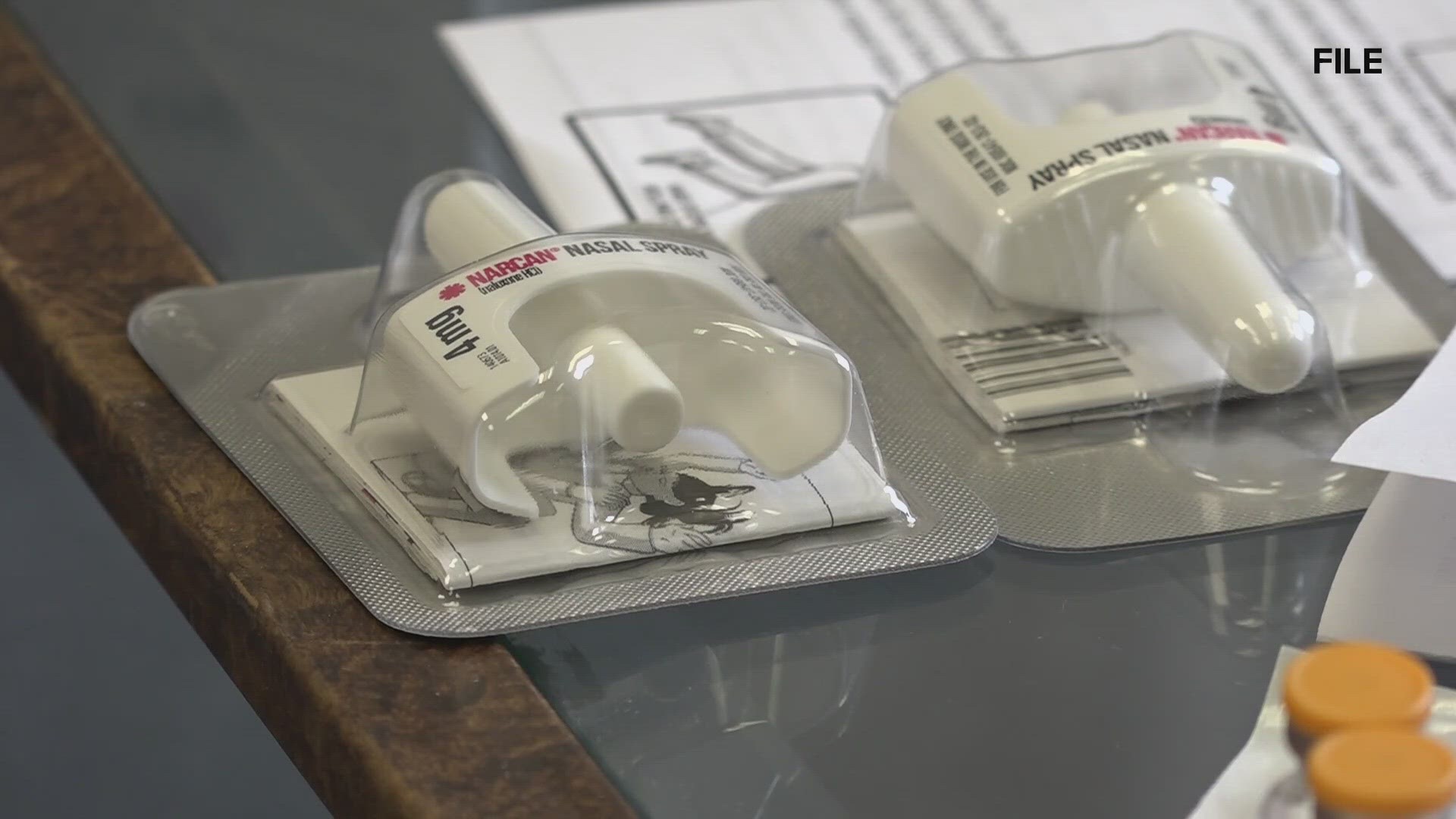ELLSWORTH, Maine — Advocates across the Maine and the country are praising the U.S. Food and Drug Administration's recent decision to allow Narcan, also known as naloxone, to be sold over the counter nationwide.
However, experts say there still is work to be done.
Healthy Acadia, a nonprofit organization in Ellsworth, offers health care and recovery options for those struggling with addiction, including training and offering naloxone.
"We want everybody to access that because we want everybody to be able to save a person's life," Harm Reduction Outreach Coordinator Beth Alteri said.
Alteri said while she normally is required to train individuals who seek out Narcan, this push in access may do away with formal training and be replaced with simple instructions inside or on the box.
"I would have to go in and train the individuals. They couldn't just leave it on the counter for anyone to use. What this is going to open up is it's not going to be like that anymore," Alteri said.
Health care providers are already on top of increasing Narcan access, with Northern Light Health announcing late last month plans to increase Narcan kits within its hospitals.
Whitney Jandreau, clinical specialist pharmacist at Eastern Maine Medical Center, said as a pharmacist this push not only gives her patients more options but also opens the door can increase how many folks carry Narcan on their person.
"You theoretically are removing the stigma barrier of someone asking for naloxone to their provider," Jandreau said.
As for the state's next steps in preventing overdoses, lawmakers are considering a bill that would require law enforcement officers to carry Narcan whenever they are on duty.
The Criminal Justice and Public Safety Committee voted seven to two in favor of the bill. Advocates believe, if it's ultimately passed, the bill is another step toward fighting the opioid crisis in the state.
"To be fair to police officers, most of them do, most departments do require it, but I wanted it to be put in state law," Rep. Nina Milliken said. "It's [the opioid crisis], something that we can't ignore, and it's something we can't keep criminalizing and throwing [people] in jail because it doesn't work."

